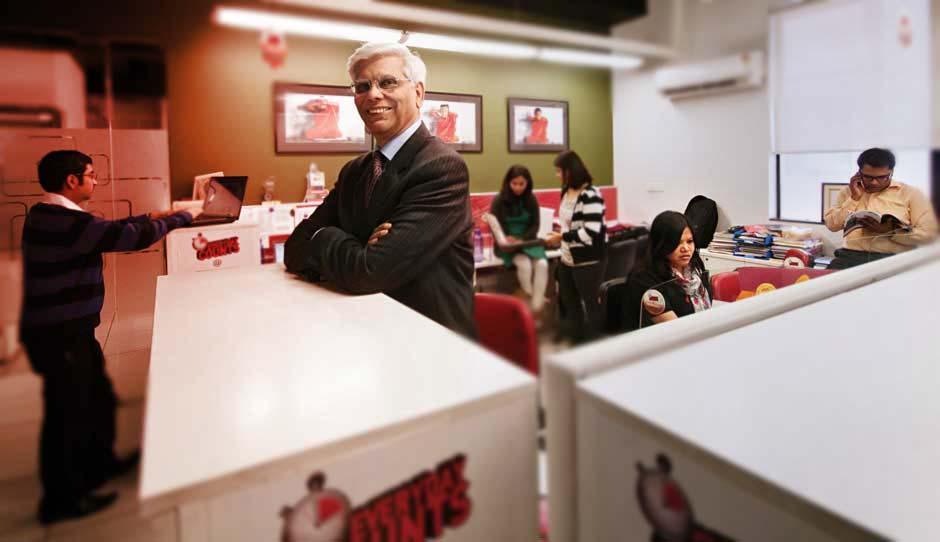How Somany Ceramics Moulded its HR Policies to Retain Talent
- BY Ira Swasti
 In People
In People 12747
12747 0
0

Srikant Somany’s fresh thinking on talent management with concepts like Performance Clinix and Stay Interview is helping his Rs1,100 crore Somany Ceramics build a workplace culture that is productive and happy.
The greatest challenge for a business today is to get the best out of its people. Most people want to perform at work but are not always able to, whether because of their peers, their bosses or a lack of guidance and mentorship. We decided to take that challenge on. So, in July this year, our general manager, HR, Biju Sebastian constituted the Performance Clinix. Just like a health clinic, the Performance Clinix is the place employees are encouraged to go to when they feel they are not able to perform and need expert guidance. When we launched this, we first built a 12-people team, picked from our in-house HR staff, for our 1,100-people strong cadre. We soon realised that people are quite hesitant to talk about their work problems with internal HR managers. They fear objectivity. We decided to reconstitute the team. We brought in four external professional HR managers, a college psychology teacher and a sociologist. Only one of our internal HR managers is in the Clinix, mostly to help coordinate. Reconstituting this team of “doctors” has worked well. Nearly 20 people have come forward to talk about their issues. For instance, an employee recently complained that he felt his boss favoured another colleague over him despite that the fact that this employee brought in more sales for the company. Even if that was only a perception, it would lead to mistrust and a not-so-great working environment between his manager and him. We decided to move this to a different location. He’s a star performer there.

In the past couple of years, we were constantly challenged when it came to retaining talent. Even in a tough environment climate where job offers dried up, we were shocked to lose 132 front line sales people. Many of them hadn’t completed even nine months here. During the exit interviews, most said a better salary was their main reason for leaving us. But, we had corrected our salaries as per industry standards, and knew the real problem lay elsewhere. It’s why we thought of launching “Stay Interviews” to get a sense of how people were feeling when they were still with the company. In the first phase, we spoke to people who had worked for us for less than a year. Our Gujarat HR manager asked about 110 of our territory managers across the country: what makes them stay in the company, the challenges they faced, what they would change about the organisation, and the triggers that would make them want to leave. These interviews took about three months but provided great on-ground insights. We found out logistics was the primary reason for anxiety and stress. We deployed custom IT tools that would help teams keep better track of logistics.
Over the years, I’ve also learnt that you don’t always need formal training to improve people’s performance at work. Earlier this year, we introduced a Personal Excellence Masters Course where our employees were mandated to read Stephen Covey’s The 7 Habits of Highly Effective People. In a few months, we will conduct a three-hour exam based on the book, and the five top scorers of this exam will be awarded to attend a four-day course at the Stephen Covey Institute. To keep people motivated, we send out quizzes based on the book twice a month. We reward winners with little gifts. Sixty-three people have enrolled for the course so far. Even if each of them imbibes one good habit from the book, the company will benefit 63 times over. I strongly believe that learning takes place when knowledge is converted into a skill, and that skill is honed and mastered into a lifelong competence.





























Add new comment